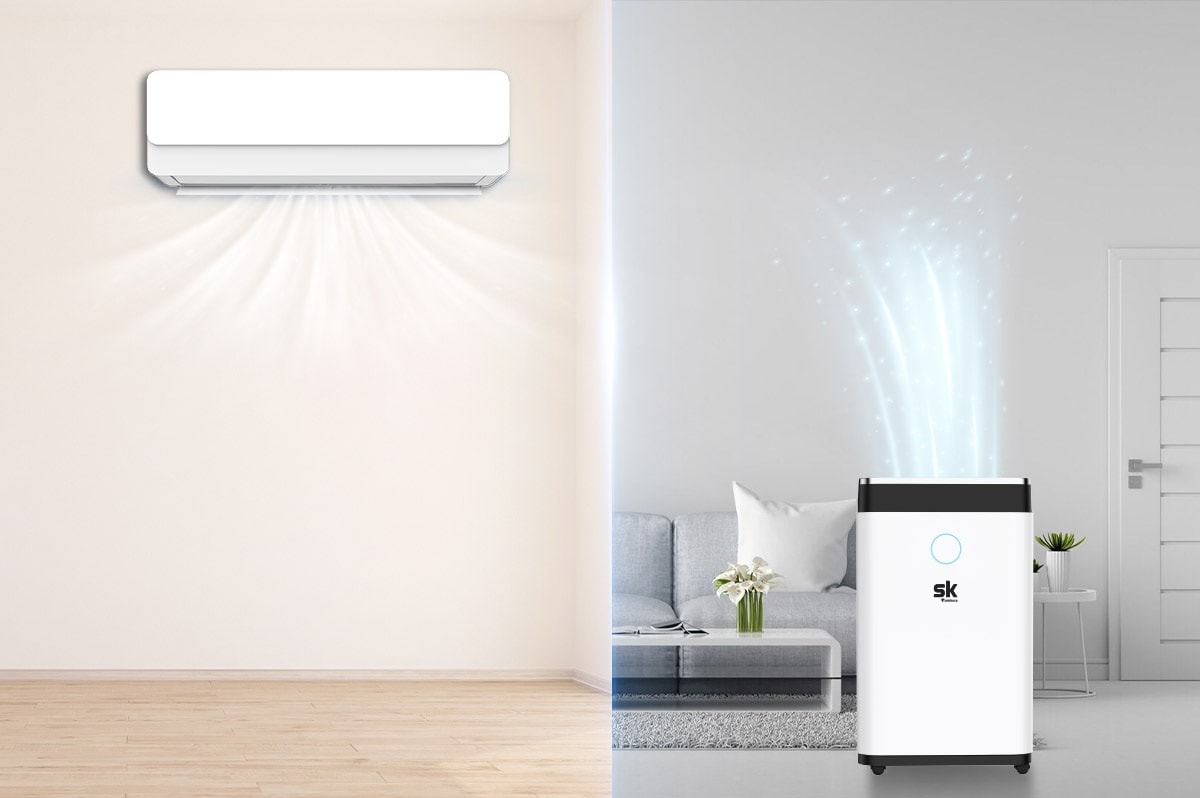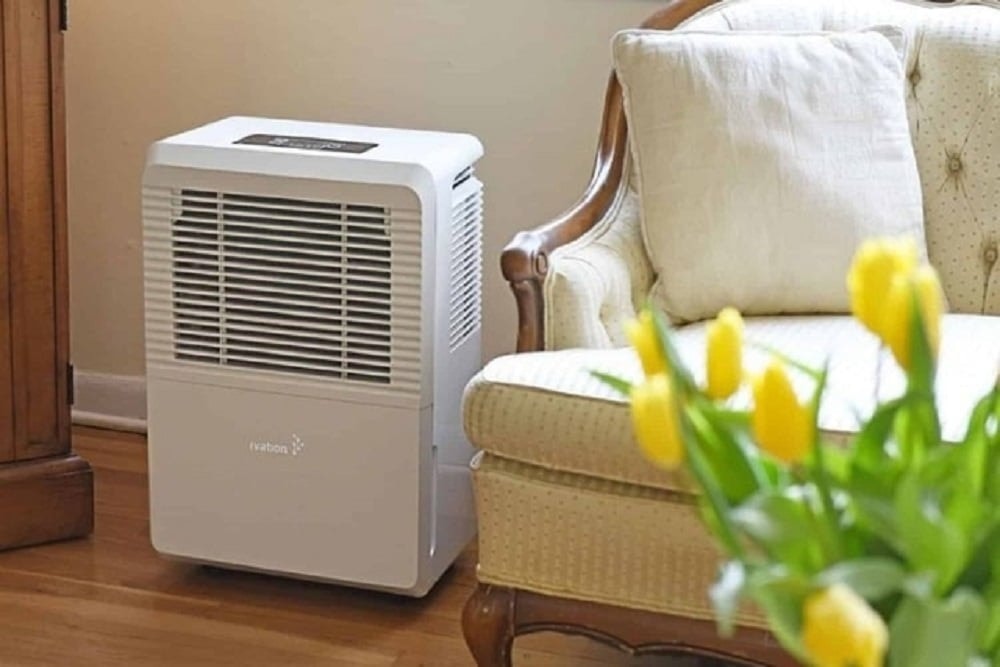Many families choose to buy a dehumidifier to prevent dampness, while others think they can take advantage of the air conditioner available in the house.

In fact, both dehumidifiers and air conditioners can be used to deal with humid weather. To compare the benefits, you need to recognize the differences between these two devices in many aspects.
Air conditioners in dehumidifying mode and dehumidifiers have a relatively similar operating mechanism. When the air conditioner is in dehumidifying mode (dry), the air in the room will be sucked into the machine, passing through the cooling coil to the evaporator. A certain amount of water vapor condenses here, at the same time pushing the dry air out of the device and blowing back into the room.
The dehumidifier sucks in a certain amount of air. This air is led to the cooling system to condense into small water droplets, which settle in the tank. The air is sent to the condenser to dry, remove the water and then return it to the outside. With the dehumidifier, because the entire process takes place on one machine, the air coming out has a slightly higher temperature than the air in the room.
The amount of electricity consumed depends on the capacity of each type of machine. But with the same performance, the amount of electricity consumed by a dehumidifier is lower than that of an air conditioner operating at the same performance level. If turned on continuously during the day, the difference is quite significant.
Dehumidifiers are more effective at absorbing moisture than air conditioners if used for a long time. The device has sensors so it can automatically adjust the humidity and maintain the necessary humidity... Air conditioners cannot automatically adjust the humidity or turn on/off, but require user control.
Dehumidifiers are more flexible because they can be moved between locations in the room, while air conditioners are mounted on the wall and can only dehumidify a certain space.

Because it integrates both the condenser and evaporator, the dehumidifier always makes noise when operating. This noise level is equivalent to the sound of a running fan. Meanwhile, the air conditioner is only noisy when first starting up, then operates more quietly thanks to the condenser being placed outside.
Currently, some dehumidifiers also have other very useful functions such as timer, air filter, ion generator, clothes dryer... so it is very convenient for users. In addition to temperature balance, air conditioners also have additional functions such as air filter, dehumidifier, humidifier...
Dehumidifiers help balance the humidity of the air, limiting the growth of pathogenic bacteria, thereby helping you avoid respiratory diseases. Although the dry mode of the air conditioner dries the air very quickly, it can cause the humidity to drop too low, causing dry skin, chapped lips and hands and feet.
Thus, both air conditioners and dehumidifiers can dry the air, but their efficiency, power consumption, and additional functions are different. Choosing which one to buy depends on your needs and financial conditions.
TB (summary)